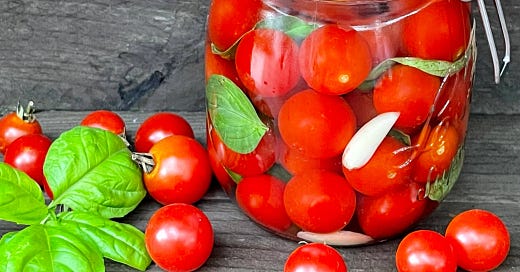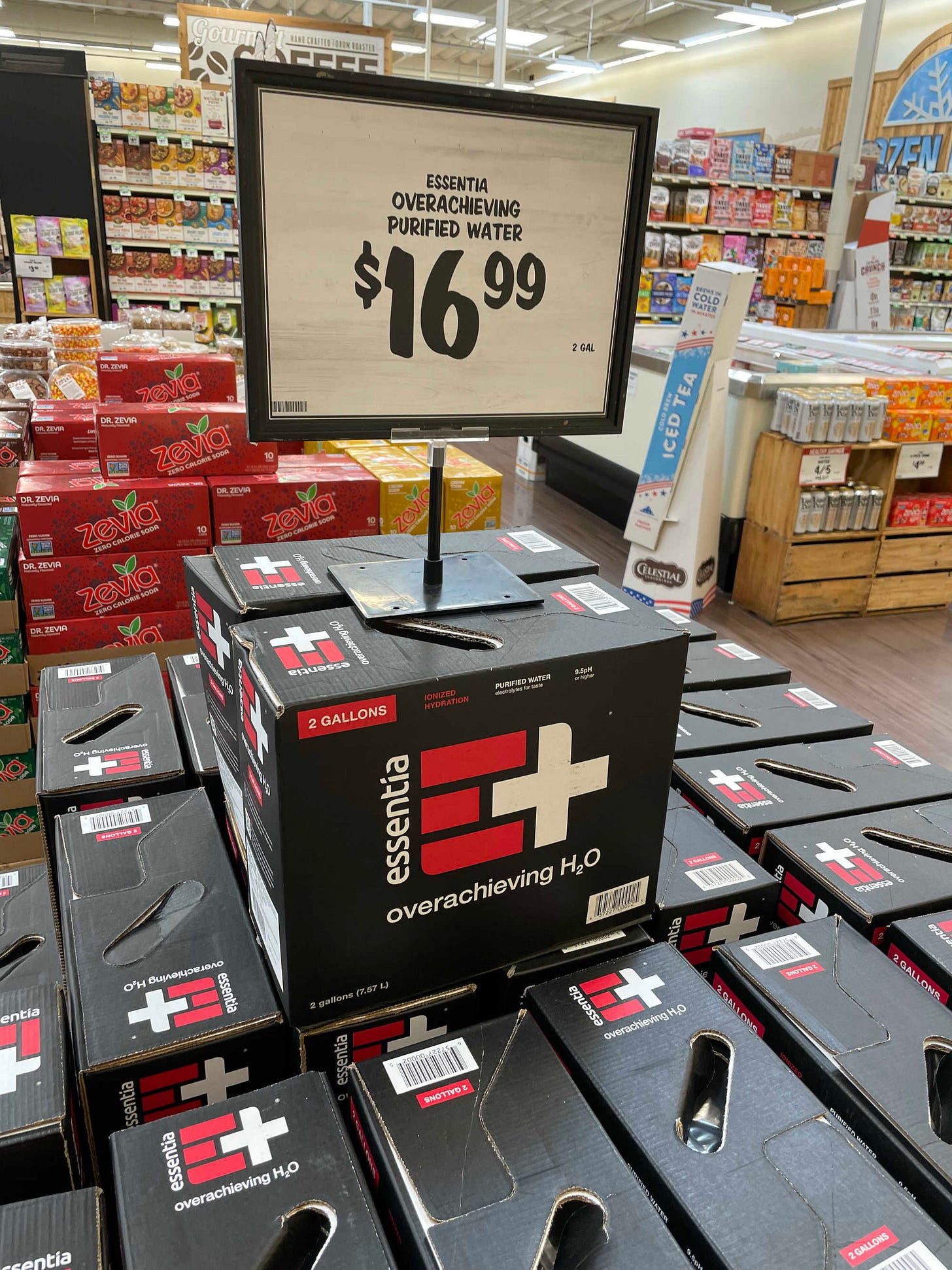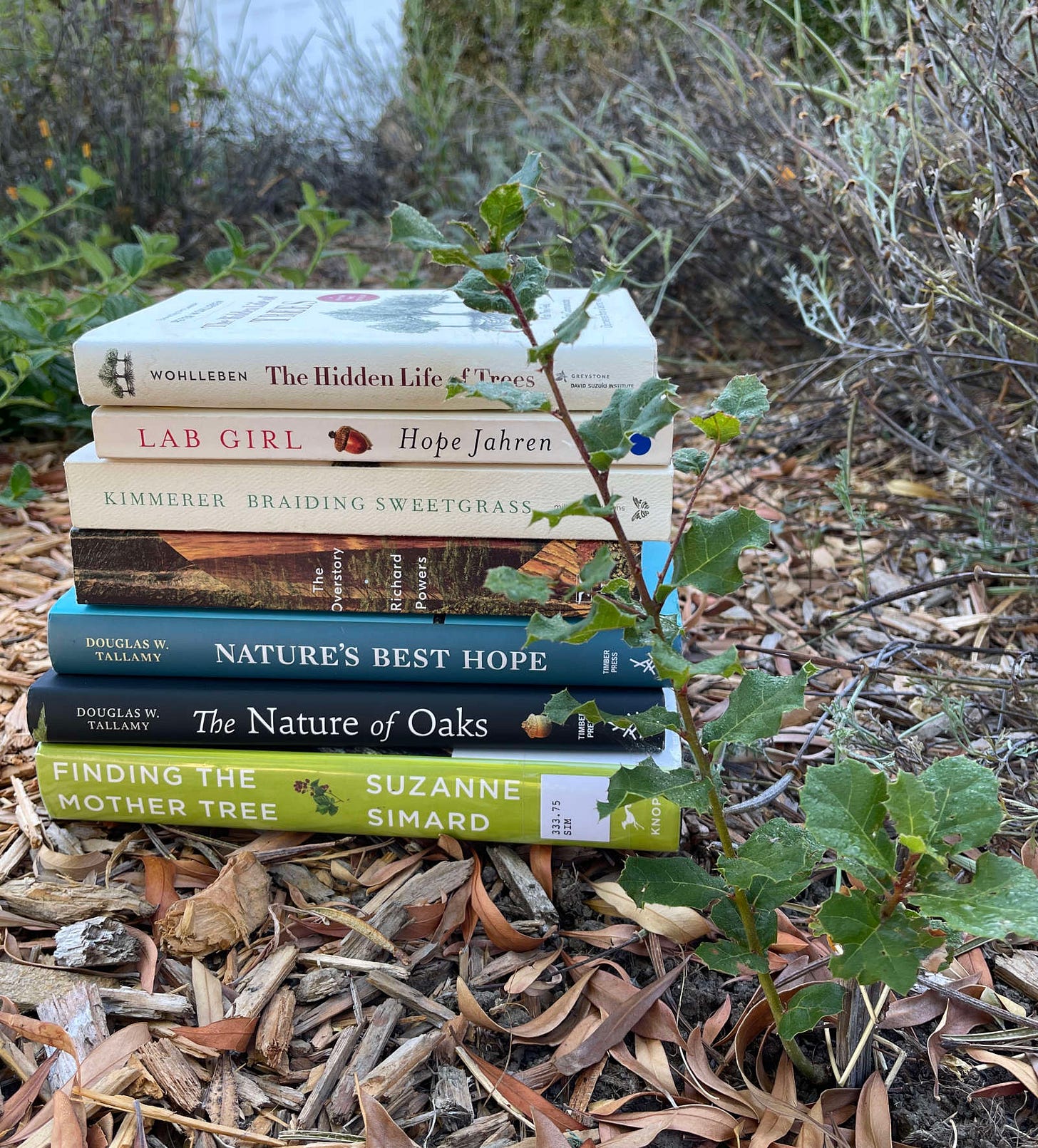7 Sustainable New Year's Resolutions that Require Little to No Work
Go easy on yourself and the planet in 2024
Many of us find the top new year’s resolutions challenging—save money, eat healthier, lose weight. According a Forbes Health/One Poll survey, people stick to their resolutions for an average of 3.74 months, way longer than I would have guessed. One year, I remember breaking a resolution on January 1st by 10am!
So, I wanted to list several eco-friendly resolutions that require no work or sacrifice on our part (or at least very little work or sacrifice), unlike resolutions such as exercising more or drinking less (not that those aren’t good goals).
1. Conserve energy: Use a slow cooker
Slow cookers require very little energy—or attention. Mine is cooking lentil soup as I type this! The convenience and ease of hands-off cooking makes busy weeknights less hectic. And the more we eat home-cooked meals on those hectic nights, the fewer over-packaged, unhealthy convenience or take-out foods we buy. We’ll also waste less food—we can control the portion sizes, for example, and eating at home means we’ll eat more of the food on hand before it goes bad.
This list of slow cooker recipes looks tasty.
2. Ferment vegetables
Good microbes cook the food for you, making this method hands-off as well. And your gut will thank you for feeding it more beneficial bacteria. Our overall health, our mood and even our weight are tied to our gut health.
One of the easiest ferments I make is a cherry tomato ferment. Wash and drop cherry tomatoes into a brine and let them sit for five days until they have transformed into tangy, effervescent and glorious bursts of tomato flavor.
After polishing off the first batch of cherry tomatoes, add a fresh clean pint of cherry tomatoes to the same jar. So easy! (And you conserve a bit of water.) The second batch will ferment faster (probably in a day).
Go here for the full recipe (one of the most popular of 2023!). Carrot sticks or cauliflower sticks also ferment nicely in a brine.
3. Drink more tap water (or filtered tap water)
Globally, Coca-Cola produces 3 million tons of plastic packaging every year, the equivalent of 200,000 plastic bottles per minute. And that’s just one beverage company (although it is the top plastic polluter). Energy drinks, flavored water, juice—almost all of these unhealthy drinks come in a plastic bottle. So save money and drink more water. But not bottled water.
Compared to the price of bottled water, tap water costs almost nothing. Yet millions of Americans buy bottled water and schlep it home not out of necessity but because clever marketing has convinced them that filtered tap water packaged and shipped in plastic bottles—or in large plastic-lined boxes—is superior. In fact, those plastic containers most often merely contain filtered tap water along with microplastic swirling around, shed from the packaging.
If you need to filter your water, check out Environmental Working Group’s water filter guide.
4. Compost outdoors if you can
You have to dispose of food scraps and wasted food somehow. Composting them can actually make your life easier. Because the source of (most) wet, icky waste comes from food, composting will render your garbage dry and smell-free. You likely won’t need a plastic trash bag.
To compost outdoors, either in a bin or in an inconspicuous corner of the yard, toss compostable materials (vegetable peels and pits, eggshells, coffee grounds and so on) followed by a layer of brown matter (dry leaves or organic straw or even brown paper). That’s it. Turn it occasionally if you like. We have three bins and neglect one of them completely and yet it continues to break down, never overflowing. (Or compost indoors. It requires a little more work but not too much.) Go here to get started with composting.
By the way, those expensive countertop “composter” appliances don’t actually compost food scraps. They grind and dehydrate them. The resulting material does not contain the microbes that break down organic matter and benefit the soil. The machines may serve some who don’t have yards or any kind of composting program in their cities but the marketing is misleading. Go here to read more about these grinders/dehydrators.
5. Don’t mow the lawn
Skip mowing not only during No Mow May, but year round. No Mow May encourages gardeners to refrain from mowing their lawns for the month, which transforms their monocultures into meadows that attract and feed pollinators. According to entomologist Doug Tallamy, by providing food during the month of May only to eliminate that source on June 1st basically teases and starves insects.
Instead, think long-term. Consider not mowing at all and providing habitat for the bees, butterflies and other insects that support the food web—and us.
If you’d rather not neglect the entire lawn, you could shrink it as Tallamy recommends in his best-selling, wonderful book, Nature’s Best Hope. Perhaps you could dedicate a small area to native plants like milkweed or goldenrod or asters—all keystone plants that support many of our struggling insects. And if they go, we go. Go here to get started with native plants.
6. Get a green credit card
To keep both the oil and the profits gushing, fossil fuel companies need cash to operate—those pipelines aren’t cheap! Since the Paris Agreement of 2015, banks around the world have poured an astounding $5.5 trillion into fossil fuel companies according to the 2023 edition of Banking on Climate Chaos, an annual report from Rainforest Action Network.
If you use a credit card issued by one of the big banks (Chase, Citi, Wells Fargo, Bank of America, RBC…), consider switching to an environmentally responsible credit card provider. If you’re just starting out and have no credit—like my 20-something children—or you have a low credit score, you likely can’t simply cut up your card and get a new one. But if you have a good rating, one of the easiest things you can do for the environment is to make the switch.
Start your search for a greener card through:
Need more help? Book a free 30-minute session with a volunteer at THIS! Is What We Did.
7. Turn off the screens
You’ll covet less stuff, buy less stuff, waste less time and likely improve your mental and physical health.
My iPhone folder “Read a Book” kind of works. I added my top time-sucking apps to it. But I need more help than this reminder so I signed up for Reclaim Your Brain, The Guardian’s 5-week program to improve screen-time habits. The program starts in early January. Go here to sign up.
And if you’re looking for a new year’s challenge…
I’ve written those in past years as well.
Happy new year!
Thank you all for taking the time to read my newsletter in 2023. I appreciate it! If you have topic suggestions for 2024, please let me know in the comments.









In July I started working on buying less trash. We have 35 L special trashbags that you have to pay a lot for each bag (while recycling is free). I’m still filling the same bag since July. Proud that my little steps made a (to me) tangible difference!
Thank you for your unstopable flow of inspiration, Anne Marie. It is a pleasure to read your newsletters! It makes me happy to know that so many people around the world work towards a green, sustainable and just world. I wish you and your lovely family a happy and healthy 2024.